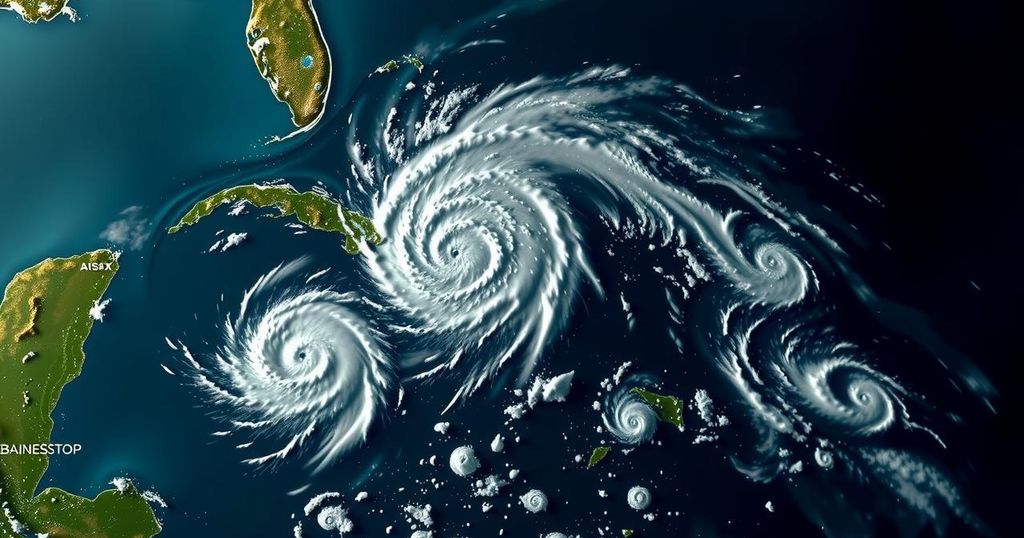Record-Breaking Events of the 2024 Atlantic Hurricane Season
The 2024 Atlantic hurricane season set new records with 18 named storms, including 11 hurricanes and five major hurricanes. Factors like warm sea-surface temperatures contributed to this active season. Noteworthy storms include Hurricane Helene, the deadliest since Katrina, and Hurricane Milton, which showcased extraordinary rapid intensification. Rafael marked a rare late-season hurricane occurrence, emphasizing the changing patterns of hurricane seasons. Overall, the season underscored significant challenges posed by severe weather events.
The 2024 Atlantic hurricane season culminated with a remarkable total of 18 named storms, a significant increase over the seasonal average. Contributing factors included unusually high sea-surface temperatures and the absence of El Niño conditions. Of these storms, 11 reached hurricane status, with five escalating to major hurricanes of Category 3 or higher. Notably, Hurricane Francine made landfall in Louisiana, while Helene and Milton impacted other U.S. areas as major hurricanes.
The season began with Hurricane Beryl, which intensified into the earliest Category 5 hurricane on record, causing extensive flooding and power outages in Texas. Hurricane Helene hit Florida as a Category 4 storm, resulting in over 150 fatalities, making it the deadliest hurricane in the U.S. since Hurricane Katrina in 2005. Furthermore, Helene marked a historic prediction by the National Hurricane Center, which forecasted its intensification before it had even developed into a tropical depression.
In October, Hurricane Milton exemplified extraordinary rapid intensification, boasting wind speeds that increased by 90 mph in just 24 hours. It reached Category 5 status with winds of 180 mph, later making landfall in Florida as a Category 3 hurricane. This storm also produced significant tornado activity and record rainfall totals. Milton’s historical significance extended to the unprecedented occurrence of three active hurricanes in October, alongside Kirk and Leslie.
Late in the season, Hurricane Rafael, categorized as a Category 3 storm, maintained surprising strength in the Gulf of Mexico. It indicated a rare event, as only four hurricanes have been recorded in the Gulf during November since 1980. Overall, the 2024 season concluded with unprecedented records and severe impacts across affected regions, underscoring the increasing intensity of hurricane seasons in recent history.
The Atlantic hurricane season typically spans from June to November, marked by periods of heightened hurricane activity. Seasonal averages estimate about 14 named storms, 7 hurricanes, and 3 major hurricanes, with variations influenced by climatic conditions such as El Niño and sea-surface temperatures. The 2024 season defied these averages, showcasing an extraordinarily high incidence of storms and record-breaking intensification rates, indicative of changing climate patterns affecting storm formation and severity. Noteworthy events during the season illustrated both the unpredictability of hurricane behavior and the challenges facing meteorological predictions.
The 2024 Atlantic hurricane season was characterized by an unprecedented number of named storms and significant hurricane activity, escalating surpassing historical averages. Notable storms such as Beryl, Helene, Milton, and Rafael not only set records but also caused substantial devastation and loss of life, highlighting the evolving nature of hurricane threats amid climate change. With the occurrence of three active hurricanes simultaneously in October, the season serves as a stark reminder of the urgent need for improved preparedness and response strategies in the face of increasingly severe weather events.
Original Source: www.nola.com




Post Comment